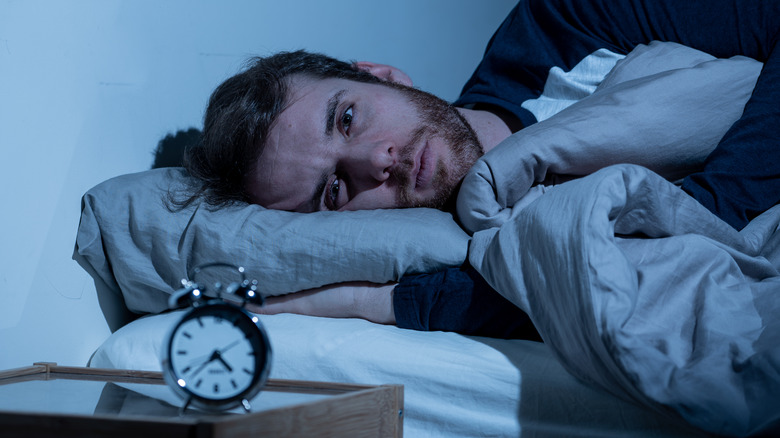You Should Stop Taking Melatonin If This Happens To You
If you've ever had trouble sleeping, you've probably been directed toward a melatonin supplement. Found in pill, gummy, or liquid form, this supplement contains the natural hormone melatonin that helps you feel tired. It can be a great natural option for people changing time zones or dealing with temporary insomnia, but experts have warned against taking it regularly.
So how do you know you should stop taking melatonin? First, there is the obvious answer that you should cut yourself off if you experience any negative side effects. According to Healthline, potential side effects include headaches, nausea, dizziness, and increased urination. Less frequent side effects may include irritability, cramps, tremors, depression or anxiety, confusion or disorientation, or low blood pressure. If you notice any of these symptoms after taking a melatonin supplement, stop taking it and talk to your doctor.
Melatonin can also interact with some medications like blood thinners, immunosuppressants, diabetes medications, and contraceptive drugs. Talk to your doctor about the best sleep aid for you if you're on any of these medications to avoid negative side effects.
You should also stop taking melatonin if it stops working altogether
Most experts recommend against taking melatonin every night because there is little known about its long-term effects (via WebMD). If you start taking melatonin every night and it stops working after a period of time, it could indicate one of two problems. The first is that you overwhelmed your system with melatonin and your body now can't tell when it's supposed to be awake and when it should feel sleepy (via HuffPost). Fortunately, if you stop taking the supplement your body should be able to regulate the natural hormone after a period of time.
Melatonin may also stop working for you if you have an underlying sleep issue. According to clinical psychologist and sleep doctor Dr. Michael J. Breus via Bustle, if this happens to you, it is "more likely that the placebo effect is helping you sleep, and not the melatonin itself." If you feel like you need a supplement to help you fall asleep every night, it's probably because of a medical condition or illness that should be addressed by a medical professional. Talk to your doctor to find the actual cause of your sleep problems instead of relying solely on a melatonin supplement.

